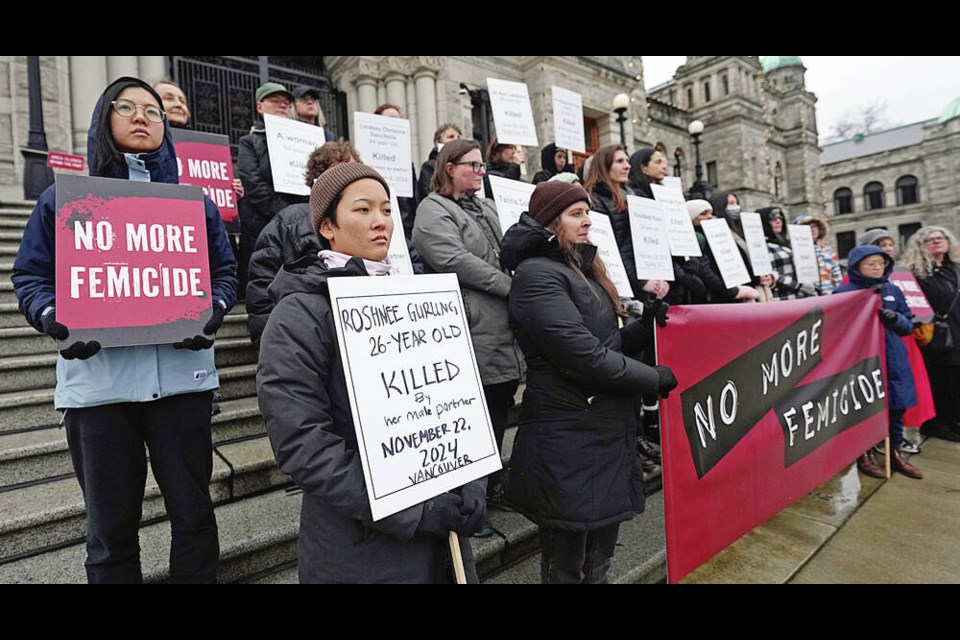Finding safe homes for the growing number of women escaping abusive relationships has become a challenge, says a spokesperson for a transition house in Victoria.
In past years, when a woman arrived at Victoria Women’s Transition House Society’s 18-bed emergency shelter — which is meant for stays of up to 30 days — she could wait until near the end of her stay to speak with staff about getting into transitional housing, said Susan Howard, the society’s development and communication director.
Now, when a woman arrives at the shelter in crisis, one of the first conversations she has is about housing options and getting on wait lists for what little transitional housing exists in the city, Howard said.
Victoria isn’t alone — cities across the country are grappling with a lack of housing for women fleeing violence, according to a report by Women’s Shelters Canada that found 97 per cent of shelter workers say it has become harder to support survivors to find housing over the last year.
More women are leaving shelters for housing that is unaffordable or unsafe, and some are choosing to return to abusers rather than become homeless, according to the report released on Monday, International Day for the Elimination of Violence Against Women.
Howard said it’s not exactly clear why the need has increased in the last decade. “I’m not certain if there is more abuse or if there’s just more awareness,” she said.
What is clear is that there is not enough second-stage transitional housing for women and their children affected by intimate-partner violence.
More than 200 women stayed in the society’s emergency shelter last year, said Howard, adding those who aren’t able to secure a space in transitional housing are in a challenging situation.
Some may stay with friends or move to another community. Others might stay in the emergency shelter longer than the typical 30-day period.
“It’s a tricky situation, because we know that there is the need for others to come into the shelter and they’re waiting,” Howard said.
Some relief may come in Victoria with the opening of a new 50-unit transitional housing building, which is nearly finished, she said.
The building, which is in a confidential location, will feature studio, one-, two- and three-bedroom apartments. It will provide women and their children homes for up to 24 months, with on-site supports and rent geared to their income.
At the legislature on Monday, a group of women held signs with the names of 16 women who have been killed in B.C. this year by men, including two on Vancouver Island.
The silent vigil was organized by Vancouver Rape Relief and Women’s Shelter, which monitors news stories and police reports to compile a list of femicides, or women killed by men because they were women, said spokesperson Hilla Kerner.
The group is asking the province to hold coroners inquests into every femicide to determine what systems failed her, Kerner said.
Half of the 16 women killed by men this year in the province were killed by a current or former partner, she said.
“It’s a reflection of the society that we live in that men have entitlement over women’s bodies without accountability,” Kerner said.
The group also wants the province to provide women with a guaranteed livable income so women in violent situations have the means to leave abusive partners, she said.



